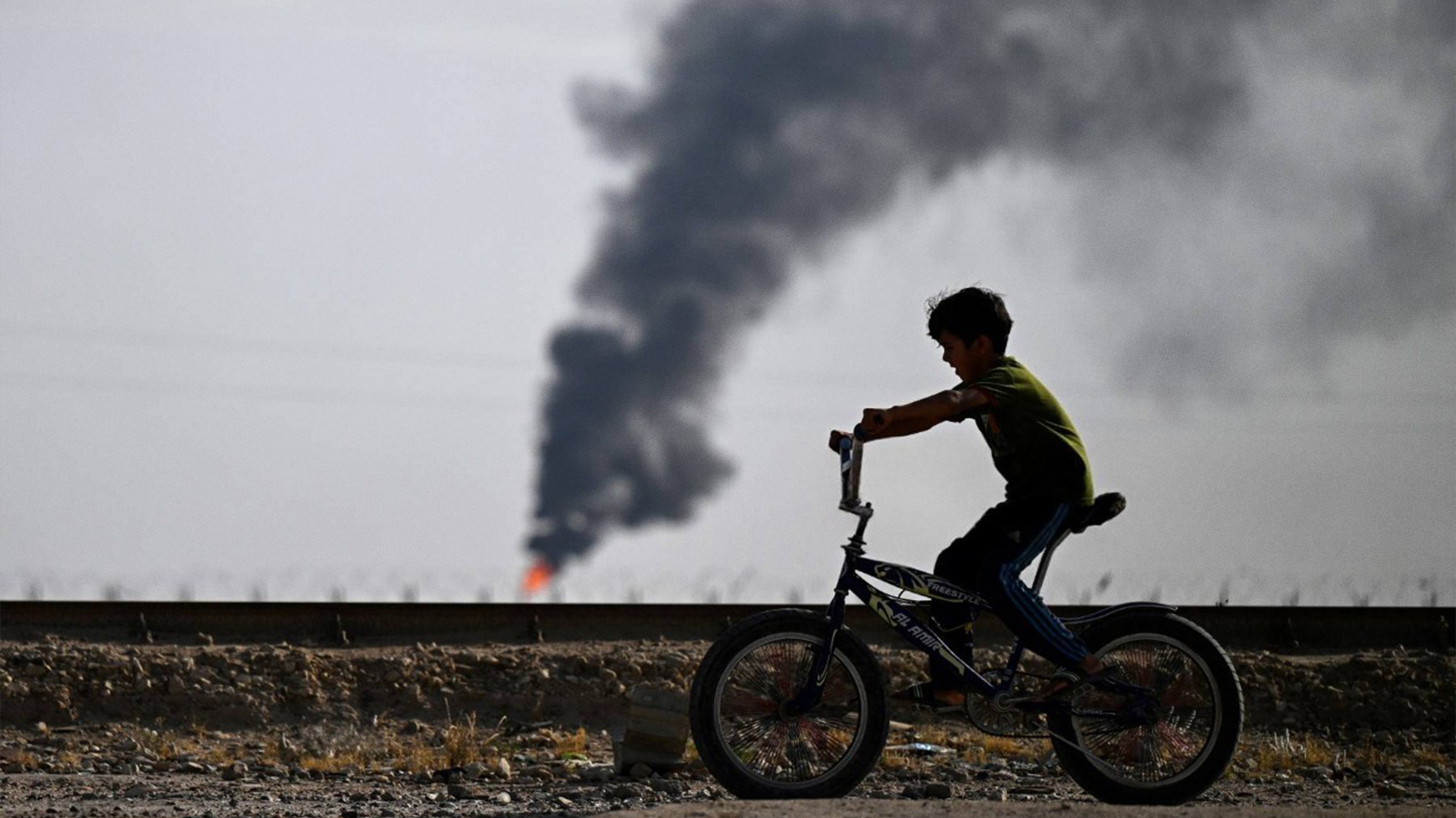'We’re Dying Slowly': Basra Tribes Slam State Neglect
Basra’s tribal leaders have condemned federal and local authorities for ignoring the province’s environmental crisis, accusing them of indifference and repression. Amid toxic pollution, rising illnesses, and deepening poverty, they demand justice, reforms, and protection for protesters.

By Kamaran Aziz
ERBIL (Kurdistan24) – Tribal leaders and community elders from northern Basra have issued a searing indictment of both local and federal authorities, accusing them of willful neglect and disregard for the region’s escalating environmental catastrophe. In a statement issued on Monday, they warned that residents are suffering a "slow death" due to unchecked pollution from surrounding oil activities.
"The local government has not only failed to respond to our legitimate demands, but responded with mockery and disdain," the tribal leaders stated, as reported by Shafaq News. They noted that although protest leaders met with officials from the Prime Minister's Office, who pledged action, no tangible progress has been made.
Their anger escalated following legal action filed against Sheikh Abdul-Ghaffar al-Awadhi, a prominent figure in the local protest movement, who was accused of incitement for organizing demonstrations. The tribal leaders denounced the charges as an assault on constitutionally protected freedoms and an attempt to silence community voices. "Sheikh al-Awadhi has supported the state and ensured regional stability since 2003. Prosecuting him is an insult to his service and a grave misjudgment," the statement said.
They demanded the immediate withdrawal of the lawsuit and called for meaningful reforms, including the prosecution of corrupt officials and a comprehensive strategy to address Basra’s pollution crisis.
The crisis in Basra is not new. Despite producing over 70% of Iraq's oil and serving as the economic backbone of the country, the province suffers from systemic poverty, unemployment, and decaying infrastructure. As Kurdistan24 previously reported, protests by petroleum engineering graduates demanding employment were violently dispersed, reflecting deepening frustration over resource mismanagement.
The environmental and health implications are particularly alarming. According to Fikra Forum, a publication of the Washington Institute for Near East Policy, Basra residents living near oil fields such as Rumaila, West Qurna, and Zubair suffer from elevated rates of cancer, respiratory illnesses, and nervous system disorders. Gas flaring, particularly at Rumaila—one of the worst globally—has released toxic compounds into the air, soil, and water.
A 2022 BBC documentary followed the story of Ali Hussein Jalud, a young man who died from leukemia believed to be caused by prolonged exposure to flaring pollutants. His family has since sought legal redress against British Petroleum (BP), which operates Rumaila Field. "The toxic smoke is part of our daily life," his father told Fikra Forum. "It took my son, and I don’t want to lose more."
Despite vast budgets—Iraq approved $153 billion annually for 2023-2025, the largest in its history—corruption and poor governance remain entrenched. Transparency International consistently ranks Iraq among the most corrupt countries globally.
Safaa Khalaf, an investigative journalist, told Fikra Forum that environmental laws are routinely ignored, with companies reducing the legally mandated buffer zones between oil sites and residential areas from 10 kilometers to as little as five. Health authorities remain silent, and no official cancer statistics are published.
Kurdistan24 has also documented the broader human toll. In interviews from Basra’s poor districts, residents spoke of children falling ill from sewage-laced streets and air pollution. "We live amid trash," said Umm Mohammed. "All we see from Basra’s oil is disease."
Public anger is mounting. Tribal leaders have warned against a return to authoritarian suppression, calling on the governor to engage in genuine dialogue with local representatives. "The silence in the face of injustice is no longer acceptable," they declared.
As the oil wealth continues to bypass its own people, Basra’s paradox deepens—a city rich in resources, yet strangled by pollution, poverty, and political neglect.